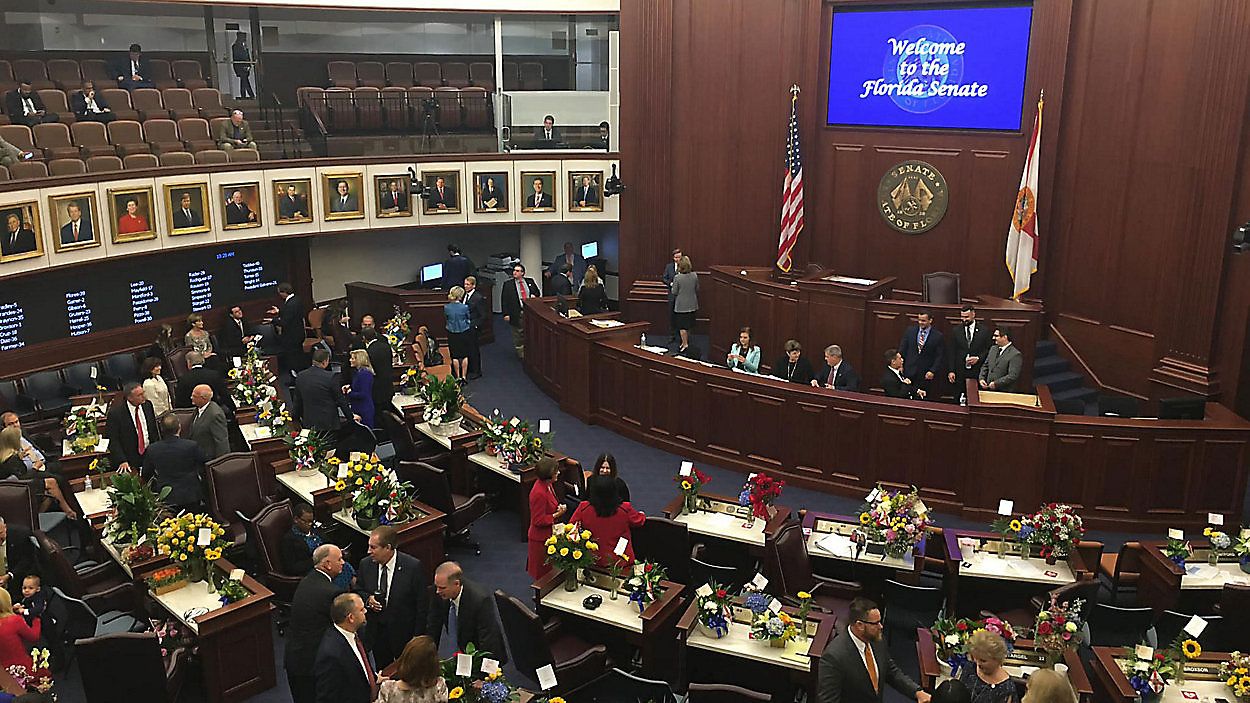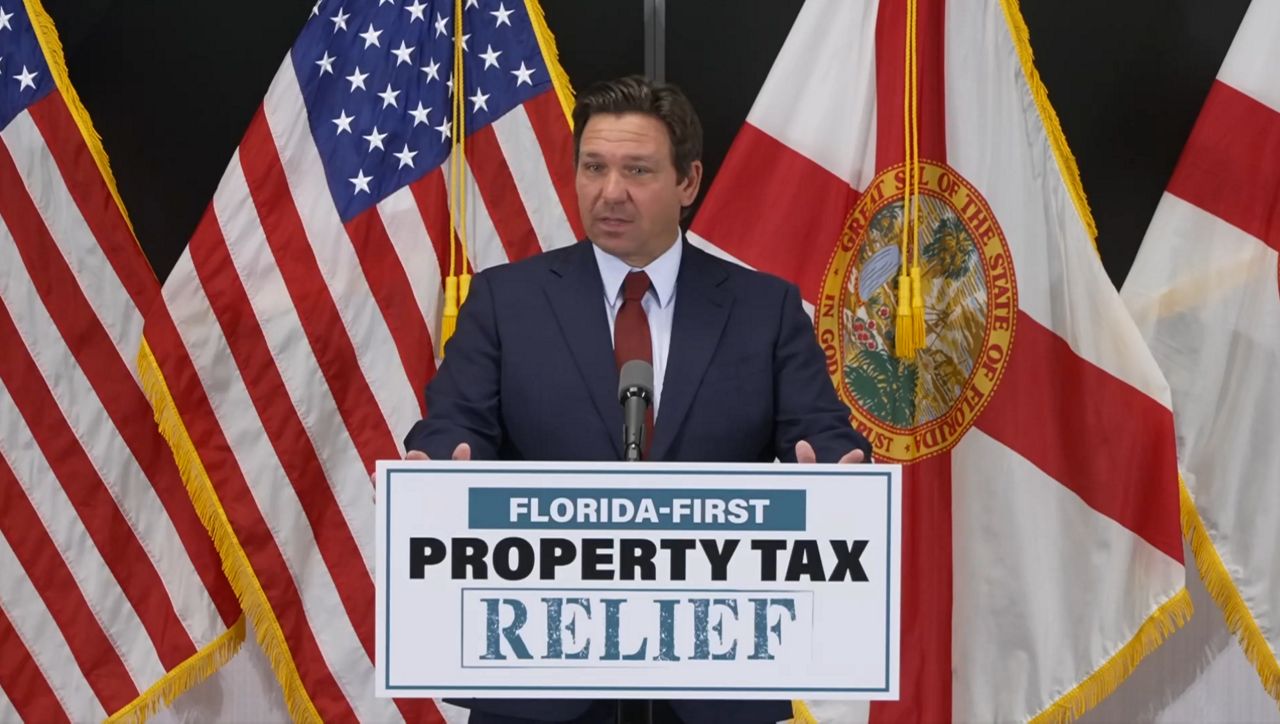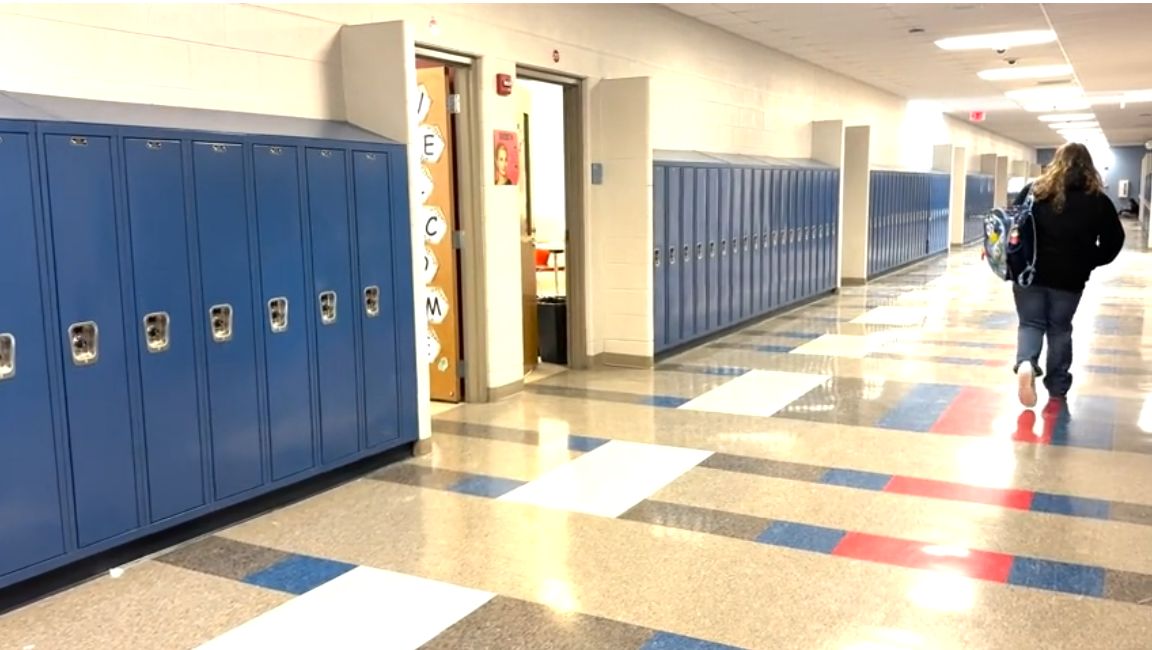ORLANDO, Fla. — Nine new laws are taking effect in Florida on Jan. 1, 2025, including social media restrictions for children and one that makes it unlawful to harass a first responder.
Here's what you need to know.
Social Media Restrictions for Children
House Bill 3 — which was passed by the Florida Legislature and signed into law by Gov. Ron DeSantis in March — bans social media accounts for children 13 and younger and requires parental permission for 14- and 15-year-olds.
It will also require social media companies to terminate any account of an account holder younger than 14 years of age and provide 90 days to dispute the termination.
The same termination rules apply for accounts held by 14- and 15-year-olds that have not gained parental permission.
Social media companies will also be required to permanently delete all information related to these terminated accounts unless "there are legal requirements to maintain such information."
Voter Registration Applications
House Bill 135 — which was signed into law by DeSantis in April — requires that party affiliation of an applicant who is updating a voter registration record may not be changed unless the applicant consents in writing.
Applicants that do not put a party on their application must also be registered without party affiliation.
The law also requires the Department of Highway Safety and Motor Vehicles to:
- Not change party affiliation of those updating voter registration without explicit written consent
- Give applicants a printed receipt and document any change in party affiliation
Building Regulations
Lawmakers say House Bill 267 — which DeSantis signed into law in May — simplifies construction and renovation processes, aiming to reduce costs and speed up permitting for residential projects.
Key changes in the building code include eliminating the requirement for seal drawings for window, door or garage door replacement for one- or two-family dwellings or townhouses, provided they meet certain conditions, which include:
- The window, door or garage door is installed in accordance with the manufacturer's instructions for the appropriate wind zone
- The window, door or garage door meets the design pressure requirements in the most recent version of the Florida Building Code for residential dwellings
- A copy of the manufacturer's instructions are submitted with a permit application
- The replacement window, door or garage door is the same size and is installed in the same opening as the existing window, door or garage door
Unless an applicant waives timeframe restrictions, the new law also sets local government deadlines to approve or deny applications within:
- 30 business days for residential structures under 7,500 square feet — which includes accessory structures, alarm systems, electrical, irrigation, landscaping, mechanical, plumbing or roofing
- 60 business days for residential structures over 7,500 square feet — which includes accessory structures, alarm systems, electrical, irrigation, landscaping, mechanical, plumbing or roofing
- 10 business days for single-family residential projects as part of a Community Development Block Grant-Disaster Recovery program administered by the Florida Department of Commerce
The law also revises the eligibility requirements a person must meet to take an examination for certification as a building code inspector or plans examiner.
Florida Uniform Fiduciary Income and Principal Act
House Bill 1093 — which was signed into law in May — updates trust and estate management laws by replacing the Florida Uniform Principal and Income Act with the Florida Uniform Fiduciary Income and Principal Act.
Key features include:
- Aligns with the “modern portfolio theory” to allow trustees to invest for the maximum total return
- Provides for the conversion of an existing trust into a unitrust for more flexible distributions
- Enhances customization for estate planning
- Provide a governing law provision to reduce jurisdictional disputes
Threatening First Responders
Senate Bill 184 — which was signed into law by DeSantis in April — makes it unlawful for a person, after receiving a verbal warning from a first responder, to violate the warning or remain within 25 feet with the intent to:
- Impede or interfere with the first responder’s ability to perform such duty
- Threaten the first responder with physical harm
- Harass the first responder
The law defines a "first responder" as a law enforcement officer, correctional or probation officer, firefighter or an emergency medical care provider.
Violating the law would be a second-degree misdemeanor.
Medical Treatment
Senate Bill 362 — which was signed into law by DeSantis in June — increases the maximum medical reimbursements for physicians and surgical procedures and increases the maximum fees for expert witnesses from $200 to $300 per hour under the “Workers Compensation Law."
The law requires employers to provide injured employees all medically necessary remedial treatment, care and attendance for the entire recovery process.
Protection from Financial Exploitation
Senate Bill 556 — which was signed into law by DeSantis in May — provides additional protections for vulnerable adults or adults 65 years or older who may be victims of suspected financial exploitation.
The law allows financial institutions to delay disbursements or transactions of funds from an account of a specified adult under the following conditions:
- The financial institution reasonably believes that there was financial exploitation of the specified adult
- The financial institution must promptly initiate an internal review of the facts and circumstances that caused the employee to reasonably believe that financial exploitation of the specified adult has occurred, is occurring, has been attempted, or will be attempted
- No later than three business days after the date on which the delay was first placed, the financial institution provides written notice of the reason for the delay to all parties authorized to transact business on the account and any trusted contact on the account
- A delay in a disbursement or transaction expires in 15 business days, but may be extended for an additional 30 business days
- The financial institutions must develop and implement training policies or programs on issues pertaining to financial exploitation of specified adults
- Records of the delayed disbursement or transactions must be kept for at least five years
Dental Insurance Claims
Senate Bill 892 — which was signed into law in May — protects dentists and patients by prohibiting restrictive contracts and unauthorized payment fees imposed by insurers.
- Prohibits limiting claim payments for dental services to credit card only
- Requires insurers to notify dentists of any fees associated with an electronic funds transfer and alternative methods; dentists must consent to the fee
- Bans insurers from denying claims for pre-authorized procedures except under certain circumstances
Private Activity Bonds
Senate Bill 7054 — which was signed into law by DeSantis in May — modernizes Florida's private activity bond regulations to streamline outdated rules and encourage maximum use of bonds for public benefit projects.
It consolidates rarely used bond pools, refines allocation processes and allows electronic submissions for bond requests.
It also simplifies rules for carrying forward unused volume caps and focuses certain pools exclusively on affordable housing.











